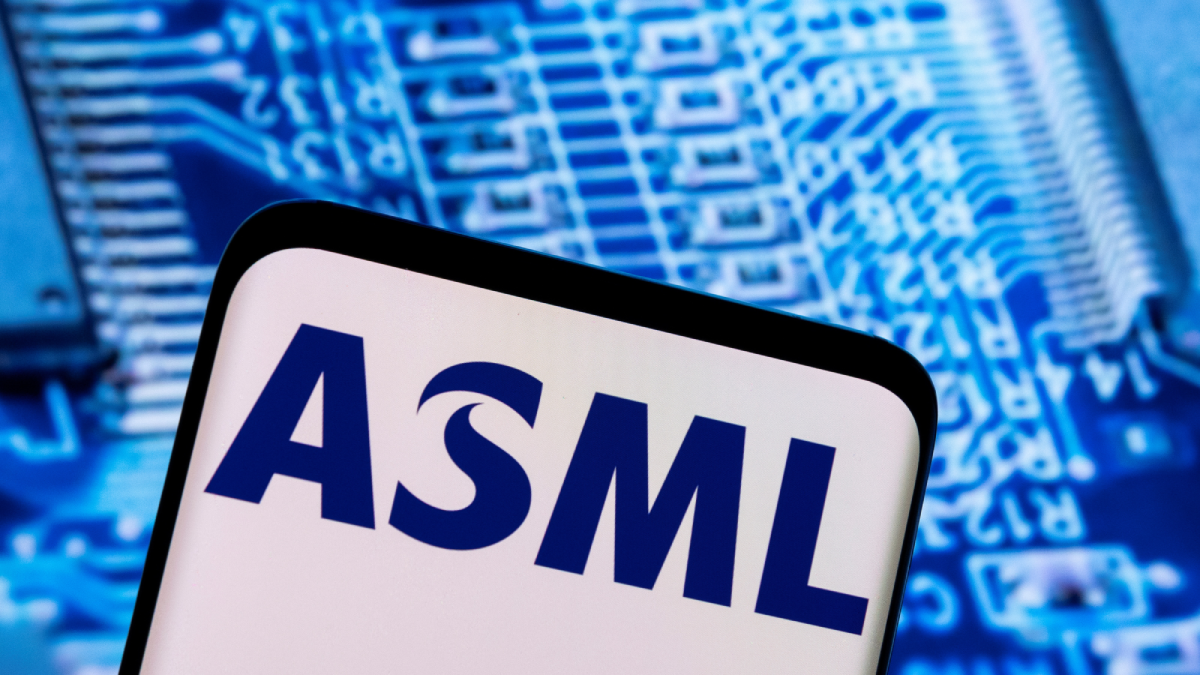Best Blue Chip Stocks to Add to Your Watchlist
If you want to invest as an expat or high-net-worth individual, which is what i specialize in, you can email me (advice@adamfayed.com) or use WhatsApp (+44-7393-450-837).
Introduction
In the realm of stock investing, blue chip stocks have exceptional popularity.
They are particularly known to be best for long-term investors as they provide greater safety levels.
Today, we will have a look at some of the best blue chip stocks, that are worth considering.
However, evaluating these stocks is done differently as I will cover the best blue chip stocks based on three different categories.
Yes, I will cover three different categories namely:
• Best Stocks by Market Capitalization (According to Forbes)
• Best Undervalued Stocks (According to Morningstar)
• Best Stocks based on Hedge Funds (According to Yahoo)
This type of evaluation will provide you with a clear understanding of these stocks.
Disclaimer: You should remember that this article is provided for educational purposes, and it should be treated that way.
I strongly suggest seeking the advice of a financial/investment professional before proceeding with your investments.
I also make it clear that I am in no way affiliated or associated with any of these companies, and neither do I endorse them.
The information is purely based on some of the reliable internet sources available over the internet.
That being said, let us begin our article for today, i.e., “Best Blue Chip Stocks to Add to Your Watchlist.”
Table of Contents
Best Blue Chip Stocks by Market Capitalization (According to Forbes)
We will now begin with the best blue chip stocks based on their market capitalization.
Why Market Capitalization?
Market capitalization, often referred to as market cap, represents the overall monetary worth of a company’s outstanding shares.
This figure is calculated by multiplying the company’s stock price by the total count of its outstanding shares.
Investors frequently utilize market capitalization as a means to evaluate the value of a stock they are contemplating for purchase.
Furthermore, market capitalization serves as a crucial metric for assessing profitability.
It is also employed in various equations to determine essential indicators like price-to-earnings ratios.
Market cap categories typically include micro-cap, small-cap, mid-cap, large-cap, and the highest category, ultra or mega-cap.
Companies that have a large market cap are typically considered stable and less risky.
Now, let us have a look at the blue-chip stocks that have a huge market capitalization.
Note that instead of just a huge market cap, these companies also have long-term growth in profits and dividends.
Apple (NASDAQ: AAPL)

Price: $178.82 (13 October 2023)
Market Cap: $2.8 trillion
Analyst Rating: Moderate Buy
Net Income: $99.80 billion
10-Year Average Annual Returns: 27.61%
Over the past year, 34 Wall Street equity analysts have provided their insights through buy, hold, and sell ratings for Apple.
Currently, there are eight “hold” ratings and 26 “buy” ratings.
This leads to the consensus among analysts that investors should consider a “moderate-buy” approach when it comes to AAPL shares.
As the year began, Apple’s stock was valued at $129.93.
Since then, AAPL shares have seen a significant increase of 37.4%, with the current trading price standing at $178.58.
Apple, listed under NASDAQ as AAPL, offers an annual dividend of $0.96 per share, translating to a dividend yield of 0.54%.
Impressively, the company has consistently raised its dividend for 12 consecutive years.
This makes us understand its strong commitment to dividend maintenance and growth.
Walmart Inc (NYSE: WMT)
Price: $159.83 (13 October 2023)
Market Cap: $430.19 billion
Analyst Rating: Moderate Buy
Net Income: $11.68 billion
10-Year Average Annual Returns: 10.76%
In the past year, a panel of 34 Wall Street analysts has shared their assessments in the form of buy, hold, and sell ratings for Walmart.
Presently, there are four “hold” ratings and 30 “buy” ratings assigned to the stock.
This results in a consensus among financial experts that encourages investors to consider a “moderate-buy” approach for WMT shares.
At the beginning of 2023, Walmart’s stock was valued at $141.79.
Since that time, WMT shares have displayed a notable increase of 12.8%, with their current market price at $159.90.
Walmart provides an annual dividend of $2.28 per share, resulting in a dividend yield of 1.46%.
Significantly, the company has maintained a consistent record of increasing its dividend for 51 consecutive years.
JP Morgan Chase & Co (NYSE: JPM)

Price: $148 (13 October 2023)
Market Cap: $430.10 billion
Analyst Rating: Moderate Buy
Net Income: $37.68 billion
10-Year Average Annual Returns: 13.88%
Over the past year, a panel of 18 Wall Street research analysts has shared their evaluations, offering ratings for JPMorgan Chase & Co.
As of now, there are seven “hold” ratings and 11 “buy” ratings assigned to the stock.
This results in a consensus among financial experts that suggests investors consider a “moderate-buy” strategy for JPM shares.
At the beginning of the year, JPMorgan Chase & Co.’s stock had a value of $134.10.
Since then, JPM stock has demonstrated a notable increase of 10.4%, with its current trading price standing at $148.11.
JPMorgan Chase & Co. offers an annual dividend of $4.20 per share, resulting in a dividend yield of 2.90%.
Notably, the company has yet to establish a robust history of consistent dividend growth.
Johnson & Johnson (NYSE: JNJ)
Price: $156.85 (13 October 2023)
Market Cap: $407.65 billion
Analyst Rating: Hold
Net Income: $17.94 billion
10-Year Average Annual Returns: 8.78%
In the past year, a panel of 15 Wall Street analysts has released their assessments, including buy, hold, and sell recommendations.
Presently, there are nine “hold” ratings and six “buy” ratings attached to the stock.
The collective view among these financial analysts suggests that investors should opt to hold their JNJ shares.
On January 1, 2023, Johnson & Johnson’s stock had a value of $176.65.
Subsequently, the value of JNJ shares has experienced a decrease of 11.3%, with the current trading price at $156.77.
Johnson & Johnson provides an annual dividend of $4.76 per share, resulting in a dividend yield of 3.00%.
Notably, the company boasts a remarkable track record of raising its dividend for 62 consecutive years.
This reflects a strong commitment to maintaining and advancing its dividend program.
Procter and Gamble Co (NYSE: PG)

Price: $144.69 (13 October 2023)
Market Cap: $341.08 billion
Analyst Rating: Moderate Buy
Net Income: $14.65 billion
10-Year Average Annual Returns: 9.46%
Over the last year, a total of 19 Wall Street equities research analysts have shared their ratings.
Presently, there are six “hold” ratings and 13 “buy” ratings associated with this stock.
The collective opinion among these financial analysts leans toward a “moderate-buy” stance on PG shares.
At the beginning of the year, Procter & Gamble’s stock was valued at $151.56.
Subsequently, the value of PG shares has experienced a 4.9% decrease, with the current trading price at $144.13.
Procter & Gamble offers an annual dividend of $3.76 per share, resulting in a dividend yield of 2.62%.
The company takes pride in its impressive track record of increasing its dividend for 68 consecutive years.
This signifies a strong commitment to maintaining and enhancing its dividend program.
Best Undervalued Blue Chip Stocks (According to Morningstar)
Now, let us have a look at the stocks that are at least undervalued by at least 10% according to Morningstar, an investment research firm.
Taiwan Semiconductor Manufacturing (NYSE: TSM)
Price: $190.46 (13 October 2023)
Market Cap: $469.16 billion
Analyst Rating: Buy
Net Income: $32.31 billion
10-Year Average Annual Returns: 20.53%
In the past year, four Wall Street analysts have evaluated Taiwan Semiconductor Manufacturing, expressing their ratings.
As of the latest data, all four of these analysts have endorsed a “buy” stance on TSM shares.
At the beginning of the year 2023, Taiwan Semiconductor Manufacturing’s stock had a trading value of $74.49.
Subsequently, the stock’s value has surged by 21.9%, and it is currently trading at $90.77.
Taiwan Semiconductor Manufacturing offers an annual dividend of $1.47 per share, resulting in a dividend yield of 1.65%.
Nestle (OTCMKTS: NSRGY)

Price: $114.26 (13 October 2023)
Market Cap: $302.07 billion
Analyst Rating: Hold
Net Income: $9.27 billion
10-Year Average Annual Returns: 13.91% (30 July 2023)
In the last year, eight Wall Street research analysts have provided their evaluations for Nestlé, offering a range of recommendations.
Presently, there is a mix of opinions with one “sell” rating, three “hold” ratings, and four “buy” ratings for NSRGY shares.
The overall consensus among Wall Street research analysts suggests that investors should adopt a “hold” position on NSRGY.
At the beginning of 2023, Nestlé’s stock was valued at $115.34.
Over time, the value of NSRGY shares has experienced a slight decrease, dropping by 1.4% and currently trading at $113.68.
Nestlé extends an annual dividend of $2.79 per share to its investors, presenting a dividend yield of 2.47%.
Roche (OTCMKTS: RHHBY)
Price: $35.40 (13 October 2023)
Market Cap: $233.56 billion
Analyst Rating: Hold
Net Income: N/A
10-Year Average Annual Returns: N/A
In the past year, thirteen Wall Street equities research analysts have provided their ratings of Roche.
Presently, the consensus stands at two “sell” ratings, nine “hold” ratings, and two “buy” ratings for RHHBY shares.
Wall Street equities research analysts concur that investors should maintain a “hold” stance on RHHBY.
At the onset of the year, Roche’s stock had a value of $39.15.
Since then, RHHBY shares have experienced a decline of 11.3%, with the current trading price at $34.73.
Roche offers an annual dividend of $0.80 per share to its shareholders, presenting a dividend yield of 2.32%.
ASML (NASDAQ: ASML)

Price: $599.75 (13 October 2023)
Market Cap: $236.66 billion
Analyst Rating: Moderate Buy
Net Income: $5.93 billion
10-Year Average Annual Returns: 20.89%
Over the past year, sixteen Wall Street analysts have provided their evaluations for ASML.
Currently, there are six “hold” ratings and ten “buy” ratings for ASML shares.
The consensus opinion among Wall Street analysts is that investors should consider a “moderate-buy” approach to ASML shares.
At the beginning of this year, ASML’s stock was valued at $546.40.
Since that time, ASML shares have appreciated by 9.8%, with the current trading price standing at $600.13.
ASML distributes an annual dividend of $2.71 per share to its investors, resulting in a dividend yield of 0.46%.
The dividend payout ratio is 13.76%, signifying that it is at a reasonable and sustainable level, remaining below the threshold of 75%.
Per earnings estimates, ASML is expected to maintain or increase its dividend with a payout ratio of 11.62% next year.
This points toward the company’s ability to sustain or even improve its dividend distribution.
Bank of America (NYSE: BAC)
Price: $26.76 (13 October 2023)
Market Cap: $212.64 billion
Analyst Rating: Hold
Net Income: $27.53 billion
10-Year Average Annual Returns: 8.64%
Over the past year, seventeen Wall Street analysts have assessed the performance of Bank of America.
Currently, there are nine “buy” ratings, six “hold” ratings, and two “sell” ratings for BAC shares.
The collective opinion among Wall Street analysts is that investors should maintain their positions in BAC, representing a “hold” rating.
Starting at $33.12 on January 1, 2023, BAC’s stock has experienced a 19.6% decline in value, with the current price standing at $26.64.
Bank of America disburses an annual dividend of $0.96 per share to its investors, which yields 3.55%.
The company has consecutively increased its dividend for three years.
This signifies a developing commitment to maintaining and expanding its dividend distribution.
Best Stocks based on Hedge Funds (According to Yahoo)
Now, we will have a look at some of the best blue chip stocks based on hedge funds.
Microsoft Corporation (NASDAQ: MSFT)
Hedge Funds: 289
Price: $327.73 (13 October 2023)
Market Cap: $2.43 trillion
Analyst Rating: Moderate Buy
Net Income: $72.36 billion
10-Year Average Annual Returns: 27.82%
In the past year, thirty-eight Wall Street analysts have evaluated Microsoft.
Presently, there are thirty-three “buy” ratings and five “hold” ratings for MSFT shares.
The consensus view among Wall Street analysts suggests that investors should consider a “moderate-buy” approach when it comes to MSFT shares.
At the onset of the year, Microsoft’s stock was priced at $239.82.
Since then, it has seen a substantial increase of 36.4%, with the current trading value at $327.22.
Microsoft, traded under the NASDAQ symbol MSFT, provides an annual dividend of $2.72 per share, resulting in a dividend yield of 0.82%.
The company’s record of raising its dividend for twenty-one consecutive years.
This aspect reflects its strong commitment to maintaining and augmenting dividend payouts.
Amazon.com, Inc. (NASDAQ: AMZN)
Hedge Funds: 243
Price: $129.79 (13 October 2023)
Market Cap: $1.34 trillion
Analyst Rating: Moderate Buy
Net Income: $-2.722 billion (2022) and $33.364 billion
10-Year Average Annual Returns: 23.45%
Over the past year, fifty Wall Street analysts have provided their evaluations of Amazon.com.
Presently, there are forty-eight “buy” ratings and two “hold” ratings for AMZN shares.
The consensus among Wall Street analysts leans toward a “moderate-buy” stance for investors considering AMZN shares.
At the beginning of the year, Amazon.com’s stock was valued at $84.00.
Since then, there has been a substantial surge of 54.4%, and the current trading value stands at $129.66.
Meta Platforms, Inc. (NASDAQ: META)

Hedge Funds: 220
Price: $314.69 (13 October 2023)
Market Cap: $809.75 billion
Analyst Rating: Moderate Buy
Net Income: $23.20 billion
10-Year Average Annual Returns: 20.68%
In the past year, 51 Wall Street research analysts have weighed in on Meta Platforms, offering recommendations for buy, hold, or sell.
As of now, there are 44 “buy” ratings, four “hold” ratings, one “strong buy” rating, and two “sell” ratings for META shares.
The overall consensus among Wall Street research analysts leans toward a “moderate-buy” stance for investors.
At the start of the year, Meta Platforms’ stock was valued at $120.34.
Since then, there has been a substantial surge of 161.2%, and the current trading value stands at $314.31.
Alphabet Inc. (NASDAQ: GOOG)
Hedge Funds: 204
Price: $138.58 (13 October 2023)
Market Cap: $1.75 trillion
Analyst Rating: Buy
Net Income: $59.97 billion
10-Year Average Annual Returns: 21.43%
In the past year, 12 Wall Street research analysts have provided their assessments of Alphabet.
Presently, all 12 ratings are “buy” recommendations, which signals a consensus among analysts that favors investors to buy GOOG shares.
At the beginning of 2023, Alphabet’s stock had a value of $88.73.
Subsequently, GOOG shares have surged by 56.0%, and they are currently trading at $138.46.
Visa Inc. (NYSE: V)

Hedge Funds: 173
Price: $237.67 (13 October 2023)
Market Cap: $442.50 billion
Analyst Rating: Moderate Buy
Net Income: $14.96 billion
10-Year Average Annual Returns: 18.19%
Over the past year, 17 Wall Street analysts have evaluated Visa, assigning ratings of “buy,” “hold,” or “sell.”
Currently, there are 1 sell rating, 3 hold ratings, and 13 buy ratings for the stock.
This reflects the consensus among Wall Street analysts favoring a “moderate-buy” recommendation for V shares.
As of January 1st, 2023, Visa’s stock had a value of $207.76.
Since then, V shares have appreciated by 13.9% and are presently trading at $236.70.
Visa (NYSE: V) offers an annual dividend of $1.80 per share, equating to a dividend yield of 0.77%.
Notably, the company has consistently increased its dividend for 14 consecutive years.
This highlights a strong commitment to maintaining and augmenting its dividend.
Why Invest in Blue Chip Stocks?
Certainly, every investor must consider including blue chip stocks in their core portfolio.
Let’s explore the major reasons behind investing in blue chip stocks:
— Reliable Profits and Dividends
Blue chip companies are renowned for generating substantial profits.
Most of them even regularly distribute a significant portion of these earnings as dividends.
However, companies such as Amazon or Meta usually don’t offer dividend payments.
This is because such companies usually concentrate on business expansion rather than providing profits to shareholders.
— Bonus Share Issuance
These companies often have considerable profit reserves, which are frequently leveraged to issue bonus shares.
These bonus shares serve to enhance an investor’s existing holdings.
— Effective Capital Utilization
Blue chip corporations typically boast substantial cash flows from their core business activities.
If these funds are not allocated to business expansion, they are often channeled into share buybacks.
Such repurchases of shares at prices exceeding market rates effectively elevate earnings per share (EPS) and contribute to the stock’s long-term price growth.
— Predictable Performance
Blue chip firms undergo in-depth analysis by brokerages and research entities.
Consequently, their performance is often more predictable, especially compared to companies with small market cap.
This reduced ambiguity in financial numbers helps minimize share price volatility.
Thus, blue chip stocks are well-suited for passive investors who do not closely track price fluctuations.
— Broad Investor Appeal
Blue chip companies are favored by various investor categories, including:
⁃ Domestic institutions
⁃ Foreign investors
⁃ High net-worth individuals (HNIs)
⁃ Retail investors
This widespread appeal results in broad ownership and high liquidity.
— Steady Growth
These mature firms, boasting well-established business models, demonstrate consistent growth, which is depicted in the stock price.
This translates to sustained capital appreciation.
However, it’s important to evaluate blue chip stocks in terms of current and anticipated valuations, just like any other stock investment.
Are There Any Risks Associated with Blue Chip Stocks?
Before incorporating blue chip stocks into their portfolio, investors should consider potential drawbacks, including:
— Reduced Agility
Due to their size and extensive operations, blue-chip companies are typically less active compared to mid-cap and small-cap counterparts.
They may struggle to swiftly respond to favorable economic catalysts.
— Lower Returns
While blue-chip firms offer stability and predictable results, they may not compete with smaller, faster-growing counterparts.
Small-cap and mid-cap companies have the potential to deliver outstanding performances.
All of this results in higher investment returns, especially during bullish market phases.
— Obsolescence Risk (Being Outdated or Discontinuance)
History is replete with examples of industry-leading blue chip firms surrender to obsolescence by failing to adapt to new market trends and technologies.
Kodak and Nokia serve as stark reminders of this risk, as they were once dominant players.
However, both of them lost their market leadership due to their inability to embrace evolving technologies.
Sources
The information provided in this article has been gathered from the most reliable sources over the internet, which include:
⁃ Forbes
⁃ Morningstar
⁃ Yahoo
⁃ MarketBeat
Bottom Line
Blue chip stocks remain popular choices among investors, offering stability, consistency, and long-term growth potential.
However, prudent research and a carefully considered investment strategy are necessary when including them in your portfolio.
They are commonly regarded as a fundamental element of a well-diversified investment portfolio.
Remember that diversification of a portfolio is a key aspect of reaching your investment goals.
Most people may not have the necessary time or knowledge regarding how to manage their investment portfolios.
If you are an expat or an HNWI, who falls under the same category, you have come to the right place.
I have helped numerous clients achieve financial freedom through my wealth management services.
Feel free to reach out to me to know if you too can benefit from my top-notch investment solutions.

Adam is an internationally recognised author on financial matters, with over 760.2 million answer views on Quora.com, a widely sold book on Amazon, and a contributor on Forbes.



